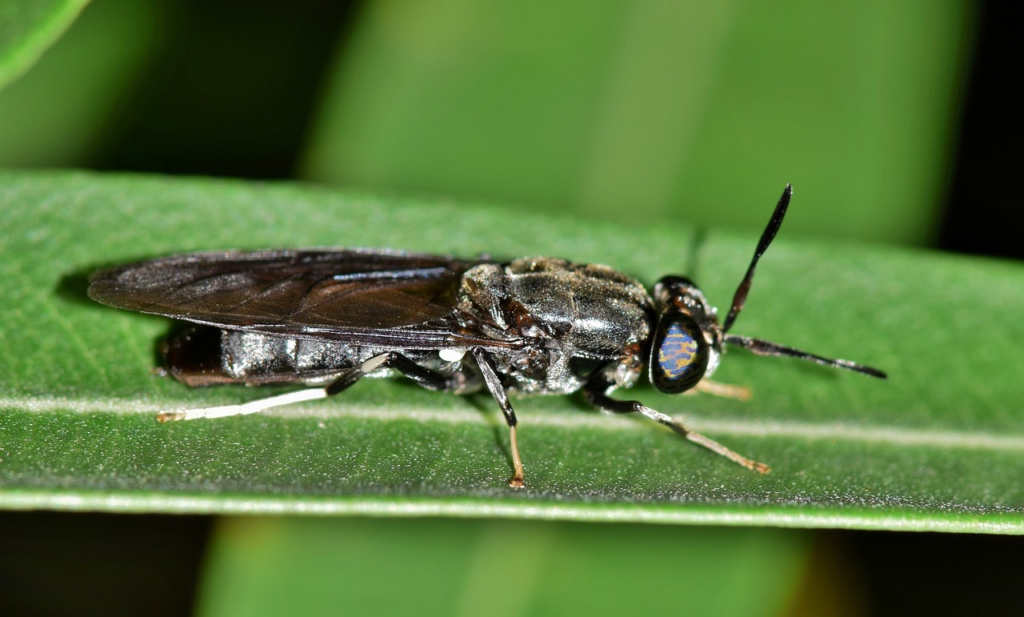While the food and beverage industry has incorporated many innovations across the supply chain to tackle food waste, one Australian startup is taking a different approach. Bardee, a Melbourne-based agtech startup, harvests Black Soldier flies, whose larvae can be used to break down food waste and convert it into fertilizer for pet food and chicken feed.
After years of toying with business ideas to tackle climate change and global food waste, Phoebe Gardner and Alex Arnold co-founded Bardee. After operating in stealth mode for the last two years, the company recently secured $5 million in a seed funding round led by Blackbird Ventures and three other angel investors. So, what earned the company this million-dollar deal?
Bardee developed a technology that transforms food waste from grocery stores and food manufacturers into new products with the power of Black Soldier flies. Also known as Hermetia illucens, the Black Soldier fly will consume twice its body mass on a daily basis. During their two-week larval stage, the flies consume all the food they will need for the duration of their lives. After another two weeks, the flies enter adulthood for five to nine days, spending their time solely on creating the next generation of Black Soldier flies.
Related: How RNA-Based Pesticides Can Improve Pest Control
In their natural environment, Black Fly soldiers clean up the forest floor and transform it into new nutrients. In Bardee’s nearly 3,000-square-foot production facility, the flies travel in packs and collectively eat everything in sight. By having the larvae consume food waste, much of it will never see a landfill. This also stops C02 emissions that occur when foods are left to bread down naturally, minimizing the company’s emissions to water evaporation and the C02 from the flies’ respiration.
Once the army of Black Soldier flies has finished feasting, Bardee transforms the leftovers into “all-natural protein and oil for pet food, poultry and aqua feed and nutrient-rich organic fertilizers,” according to the company’s website. And its processing plant breaks down food waste much faster than commercial composting, too.
Beyond upcycling food waste, Black Soldier flies themselves could also soon become human food. With more and more insects being approved for consumption by food standards regulators across the globe, Bardee is hopeful that Black Soldier flies will be next on the list. Even in that case, consumer eating habits will have to shift dramatically in order to accept insects as snacks. But some market research suggests it will, with Meticulous Research estimating that the edible insects market will reach $4.63 billion by 2027, with a compound annual growth rate (CAGR) of 26.5 percent.
Bardee joins a small cohort of other global startups looking to harness the power of insects to accelerate the recycling process. Fellow Australian startup Goterra focuses on turning organic waste into food for livestock, while Canada-based Insectta also uses Black Soldier flies to convert food waste into valuable biomaterials.
Bardee hopes to expand its facilities to over 10,000 cities worldwide that are in need of a more efficient and sustainable way of breaking down food waste.
“Their first facility is a true marvel of biology and engineering, and when there are thousands of Bardee facilities worldwide, not only will we transform the way society processes waste, but the way we deliver protein to animals, and humans alike,” Blackbird partner Nick Crocker told The Sydney Morning Herald.












Join or login to leave a comment
JOIN LOGIN